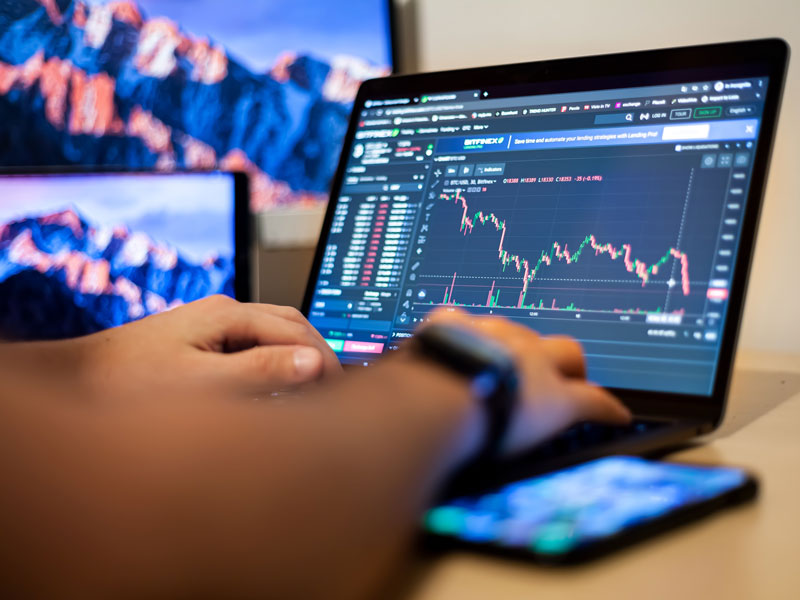
Understanding Forex Trading Accounts: A Comprehensive Guide
Forex trading involves the buying and selling of currencies, and to participate in this lucrative market, traders must first understand the different types of forex trading account Trading Brokers and accounts available. A forex trading account is a specific account that allows traders to engage in currency trading on the foreign exchange market. This article will delve into the various types of forex accounts, their features, and considerations for choosing the account that best suits your trading style and needs.
What is a Forex Trading Account?
A forex trading account is an online account that traders use to execute transactions in the foreign exchange market. It acts as a platform for traders to manage their investments, access market data, leverage trading opportunities, and execute orders. Forex accounts are offered by brokers and can vary widely in terms of features, regulations, and fees.
Types of Forex Trading Accounts
There are several types of forex trading accounts that cater to different levels of trading experience and investment capital. Here are some of the most common types:
1. Demo Accounts
Demo accounts are ideal for beginners who want to practice trading without risking real money. These accounts allow traders to use virtual funds to execute trades based on live market conditions. This is an excellent way to test different strategies, familiarize oneself with trading platforms, and understand the forex market dynamics without financial risk.
2. Standard Accounts
A standard forex account is suitable for traders who have a basic understanding of forex trading. It usually requires a larger initial deposit—typically around $1,000 or more—and allows traders to trade in standard lot sizes of 100,000 units of currency. Standard accounts often offer access to leverage, which can amplify both potential profits and risks.
3. Mini Accounts
Mini accounts are designed for beginners or traders with a lower budget. They require a smaller initial deposit, often around $100, and allow trading in mini lot sizes of 10,000 units. This type of account is great for those who want to enter the forex market and refine their strategy without a significant financial outlay.
4. Micro Accounts
Micro accounts are the most suitable for new traders or those wanting to trade with minimal risk. They require a very low minimum deposit—sometimes as little as $10—and enable trading in micro lot sizes of 1,000 units. This account type provides traders with an excellent opportunity to learn trading mechanics without risking substantial amounts of money.
5. ECN Accounts
Electronic Communication Network (ECN) accounts are suited for experienced traders who seek a more direct market access. They connect traders directly with liquidity providers, allowing for tighter spreads and faster execution. However, ECN accounts usually involve higher trading costs and require a larger initial investment. Traders can benefit from lower latency and greater transparency in pricing.
Features of Forex Trading Accounts
When selecting a forex trading account, various features should be considered, including:
1. Leverage

Leverage allows traders to control larger positions with a smaller amount of capital. While it can increase potential profits, it also amplifies potential losses. Understanding how leverage works and choosing the right leverage ratio is crucial for managing risk.
2. Spread
The spread is the difference between the buying and selling price of a currency pair. It can vary by account type and broker, affecting trading costs. Tight spreads are generally more favorable, especially for day traders or scalpers who execute numerous trades.
3. Commission Fees
Some forex brokers charge commission fees on trades, while others may rely solely on the spread. It’s essential to understand the fee structure of the chosen account type, as these costs can eat into profits.
4. Trading Platform
The trading platform is the software used to access the forex market. Different brokers offer various platforms, such as MetaTrader 4 (MT4) or proprietary platforms. Make sure to choose a broker that provides a user-friendly and reliable trading platform for seamless trading experience.
Choosing the Right Forex Trading Account
Selecting the right forex trading account involves evaluating personal trading goals, risk tolerance, and experience level. Consider the following when making your choice:
1. Trading Style
Your trading style (e.g., scalping, day trading, or swing trading) will influence the type of account that best suits your needs. For example, if you are a day trader, look for accounts with low spreads and fast execution times.
2. Risk Management
Assess your risk tolerance and determine how much capital you are willing to invest. If you are a risk-averse trader, consider starting with a micro or mini account to manage your risks effectively.
3. Educational Resources
Many brokers offer educational resources, including webinars, tutorials, and market analysis. Choosing a broker that provides ample educational support can be beneficial for your trading journey.
4. Regulatory Compliance
Ensure that the broker you choose is regulated by a reputable financial authority. This adds a layer of protection for your funds and ensures fair trading practices.
Conclusion
A forex trading account is an essential tool for anyone looking to participate in the currency markets. By understanding the different types of accounts available and their features, traders can make informed decisions that align with their trading strategies and risk management preferences. It’s advisable to take the time to research and compare brokers to find the one that offers the best trading conditions for your trading style. As you embark on your forex trading journey, remember that continuous learning and practice are crucial for your success.
 صحيفة سودان بيزنس الاقتصادية صحيفة سودان بيزنس الاقتصادية
صحيفة سودان بيزنس الاقتصادية صحيفة سودان بيزنس الاقتصادية
